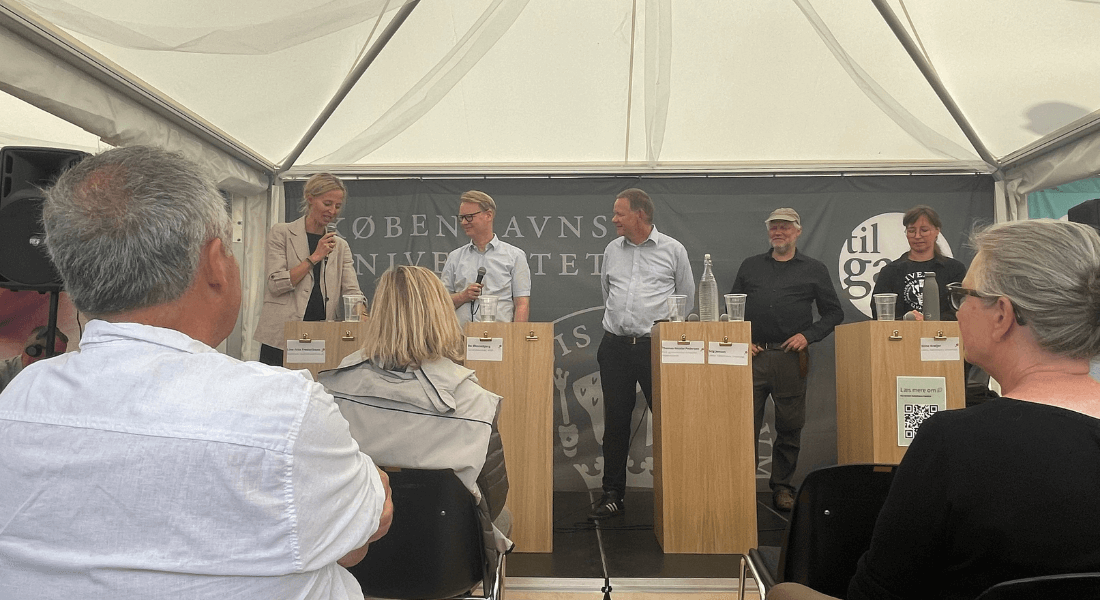The Fight for Nature and Biodiversity

Associate Professor at CAS, Stig Jensen, recently participated in Folkemødet were he joined a panel on the “Fight for Nature” in relation with his work at the Green Solutions Centre. The panel discussion highlighted the challenges in relation to nature, biodiversity, survival and human survival. It pointed out that the crisis in biodiversity in only getting worse. To resolve it international partnerships are needed, in addition to locally adapted solutions.
However, examining Denmark’s recent politics, Stig Jensen finds that Denmark is no longer a frontrunner on climate. This conclusion is based on four observations: Denmark has not allocated any money to fund the follow-up to COP15, it is actively undermining the national park concept, it is unable to meet the requirement of 30% protected nature by 2030, and it is working to degrade the living conditions for biodiversity in its only richly biodiverse nature area (Vadehavet). Denmark’s retrograding politics, when it comes to biodiversity, have important implications as it sets a bad precedent, especially since Denmark previously occupied the space as a frontrunner. It also has implications for the Global North and Global South relations, since countries from the Global South have repeatedly raised concerns over the Global North breaking its promises with regards to climate policy.
Many countries in the Global South have a significant authority over certain climate policy areas, especially as it relates to biodiversity since many of them have a particularly rich biodiversity. This is also the case of many African states. When looking at these, Stig Jensen finds that colonial legacies have shaped nature management strategies, and that nature management generally is often challenged because it is not a priority in high politics. Nonetheless, he remarks certain trends:
- A desire to break from dominating western approaches to nature management
- Commercialization of nature management
- Outsourcing of nature management (e.g.: African Parks)
- Continuing conflicts of interest over nature management
- Climate neutrality’s impact on biodiversity
He also highlights that while there have been positive numbers at it relates to the COP15 goal (conservation of 30% of the world’s lands, coasts and oceans by 2030) in African states, this also comes at high costs. The very importance of African biodiversity is also what makes it a highly conflictual arena, of high interest to many different parties. As such biodiversity creates new local opportunities but also growing possibilities for conflict.
For more information on Stig Jensen’s observations regarding nature management in Denmark read here. You can read about general trends in nature management in Africa here, and the conflicts that erupt over nature in some African states here.
